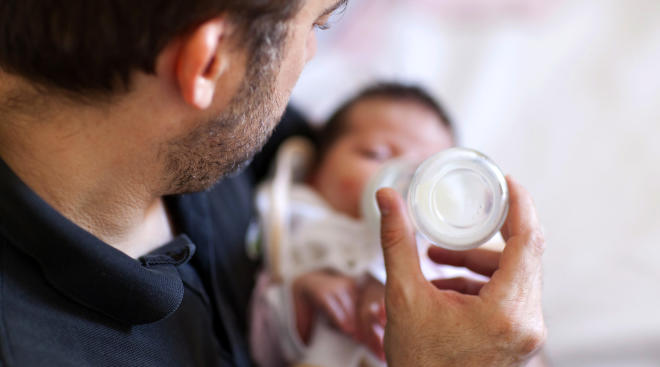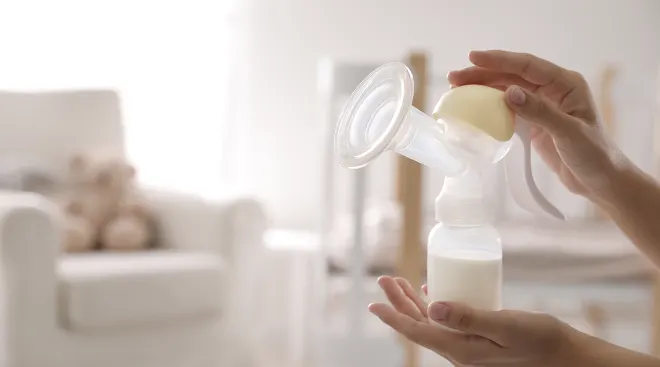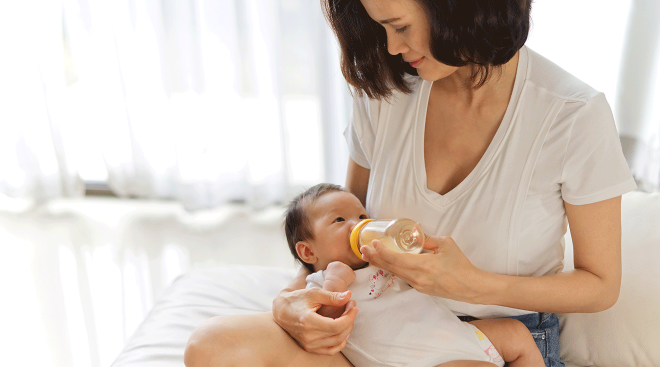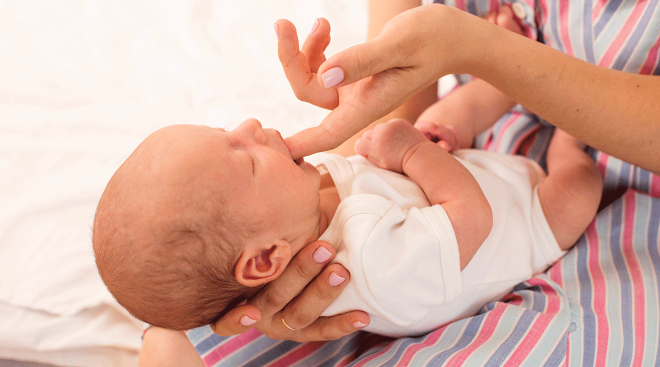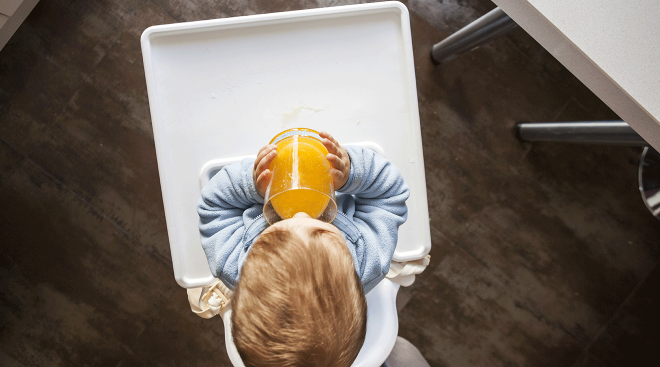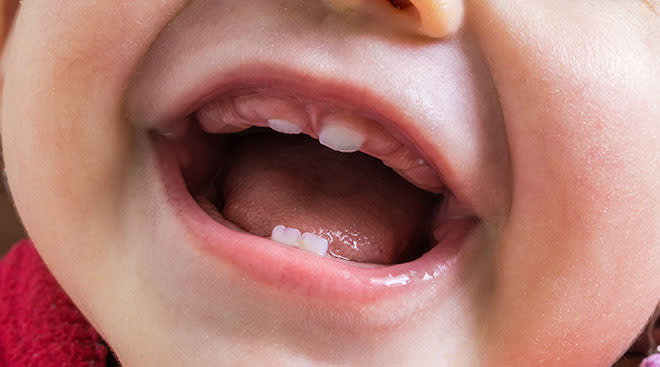New Study Finds 9 Out of 10 Newborns Are Born With Gut Deficiency
A new study published in Scientific Reports has found that approximately nine out of 10 infants are born with gut microbiome deficiencies.
The study is the largest to date to look at the widespread deficiency. It looked at fecal samples from 227 babies under 6 months old during their pediatrician visits in the states of California, Georgia, Oregon, Pennsylvania and South Carolina. They looked at both the bacteria type present and how much of it there was to determine an infant’s bacterial composition. They also specifically looked at the bacteria’s ability to fully use the breast milk consumed by baby. According to the report, this is a sign of the presence of health-promoting bacteria in the gut.
In particular, the study called out the absence of Bifidobacterium longum subsp. infantis (B. infantis) in the babies’ gut, a type of bacteria that plays a big role in infant health and development of the immune system. It provides the most benefits to infant gut health and has the ability to fully access the nutritional benefits of breast milk, doing so by breaking down the carbs found in breast milk so that baby’s body can access them.
“The vast majority of infants are deficient in this key gut bacterium from the earliest weeks of life, and this is completely off the radar for most parents and pediatricians, alike” study co-author Karl Sylvester, MD, Professor of Surgery and Pediatrics and Associate Dean of Maternal Child Health Research, Stanford University, said in a press release. “This study provides the clearest picture to date of just how widespread this issue is and highlights the need to address B. infantis deficiency in the infant gut right from the start.”
The researchers also found that on average, bacteria that could be dangerous made up around 93 percent of all bacteria in the infant gut microbiome, the most prevalent of which were E.coli, Klebsiella pneumoniae, Salmonella, Streptococcus, Staphylococcus and C. diff. According to the study, many of these bacteria are known for their antibiotic resistance genes. In fact, the researchers found a total of 325 antibiotic resistant genes in the gut bacteria, 54 percent of which were ones that allow bacterial resistance to several antibiotics.
“The infant gut is essentially a blank slate at birth, and rapidly acquires bacteria from mom and the environment. We were surprised not only by the extensive lack of good bacteria, but the incredibly high presence of potentially pathogenic bacteria and an environment of antibiotic resistance that appears to be so widespread,” said Dr. Sylvester. “The infant gut microbiome in the U.S. is clearly dysfunctional, and we believe this is a critical factor underpinning many of the infant and childhood ailments we see today across the country.”
According to the study, over the past 100 years, there has been a decline of Bifidobacteria in baby’s gut, which researchers say could be attributed to several factors, including increased use of antibiotics, infant formula and C-section delivery. However, some, if not all, of these factors may be out of parents’ control.
“Bifidobacerium longum subsp. infantis, a type of bacteria found in a baby’s gut microbiome, is critical for infant health and development. This bacteria plays a role in helping the baby process and utilize breast milk to its full potential as well as fighting against conditions such as colic and diaper rash,” Alexis Phillips, DO, a Texas-based pediatrician says. “But parents should keep in mind that studies like these have their limitations. Researchers have based their conclusions mainly from single-site microbiome studies, often limited to a geographical area where samples were collected. Also, many microbiome studies are performed in preterm infants versus full term infants which is problematic because preterm infants have microbiome instability.”
She adds that moms should try to breastfeed their kids whenever possible, as breast milk contains probiotics and prebiotics that promote the growth of good bacteria, or supplement baby with either probiotics or prebiotics. Additionally, when baby is close to six months and introduced to solids, she recommends including foods that contain prebiotics that can help support baby’s gut health.
“Unfortunately, having less good bacteria allows for more harmful bacteria to be present in the gut—bacteria with genes linked to antibiotic resistance. Correcting this balance may lead to the understanding of many childhood illnesses. Despite this information, I would not focus on trying to balance the microbes of the gut,” Phillips continues. “This study was on a small level, so I would avoid going overboard in trying to replace what could possibly deficient in the baby. Most babies do well regardless.”
Of course, when it comes to your individual child’s gut bacteria, supplements and other nutritional needs, you should always refer to your pediatrician or healthcare provider.
Please note: The Bump and the materials and information it contains are not intended to, and do not constitute, medical or other health advice or diagnosis and should not be used as such. You should always consult with a qualified physician or health professional about your specific circumstances.
Navigate forward to interact with the calendar and select a date. Press the question mark key to get the keyboard shortcuts for changing dates.






































